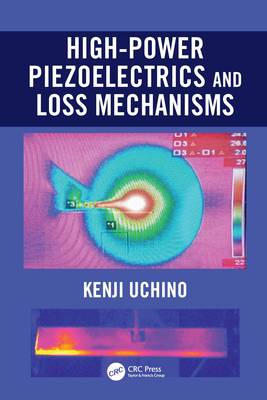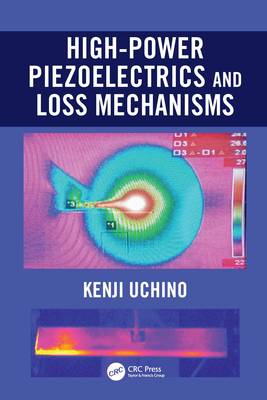
- Retrait gratuit dans votre magasin Club
- 7.000.000 titres dans notre catalogue
- Payer en toute sécurité
- Toujours un magasin près de chez vous
- Retrait gratuit dans votre magasin Club
- 7.000.0000 titres dans notre catalogue
- Payer en toute sécurité
- Toujours un magasin près de chez vous
Description
As one of the pioneers of "Piezoelectric Actuators", I have contributed to the commercialization of various products for over 45 years, including million-selling devices, micro-ultrasonic motors for smart-phone camera modules by Samsung Electromechanics, piezoelectric transformers for backlight inverters by Apple laptops, multilayer PZT actuators for diesel injection valves by Denso Corporation, and piezoelectric energy harvesting modules for Programable Air-Burst Munition by the US Army. During the development period for "piezoelectric actuators and transformers," I found that the bottleneck for device miniaturization was heat generation under a high-power drive condition. Thus, in parallel to the piezo-actuator developments, I have been developing various high-power density piezo-ceramic materials with the loss mechanism clarification. Hence, I considered that it was time to organize a textbook based on the previous studies, including my materials development philosophy to stimulate younger generations to reach to the energy density of up to 100 W/cm3 in the future. Increasing efficiency and saving energy and space (compactness) are one of the important approaches in this 21st-century "sustainable society."
High-Power Piezoelectrics and Loss Mechanisims introduces the theoretical background of piezoelectrics, electromechanical phenomenology, loss mechanisms, practical materials, device designs, drive and characterization techniques, and typical applications, and looks forward to the future perspectives in this field. This book is NOT an overall review of this area, but it focuses on important and basic ideas under my development philosophy to understand how to design and develop high-power piezoelectric materials and devices.
This textbook is designed for self-learning by the reader aided by the availability of:
- Chapter Essentials - Summary for quick memory recovery
- Check Points - Answers are provided in the Appendix
- Example Problems - To enhance the reader's understanding with full, detailed solutions
- Chapter Problems - For the final exam or further consideration
Spécifications
Parties prenantes
- Auteur(s) :
- Editeur:
Contenu
- Nombre de pages :
- 358
- Langue:
- Anglais
Caractéristiques
- EAN:
- 9780367540692
- Date de parution :
- 10-09-20
- Format:
- Livre relié
- Format numérique:
- Genaaid
- Dimensions :
- 178 mm x 254 mm
- Poids :
- 875 g

Les avis
Nous publions uniquement les avis qui respectent les conditions requises. Consultez nos conditions pour les avis.






